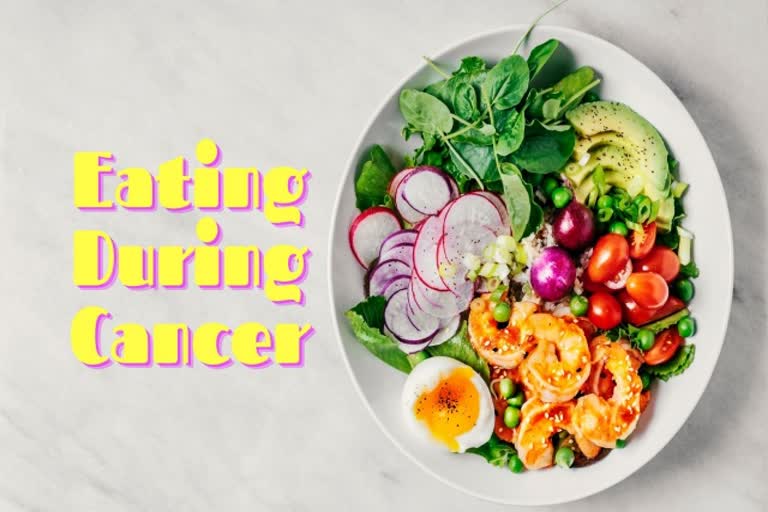Once the diagnosis of cancer is confirmed, the doctor will decide the type of treatment needed. Cancer treatments such as chemotherapy or radiation kill cancer cells but damage the healthy cells too and are accompanied by a number of side effects that may affect an individual mildly or severely.
As per Dietitian Rohini Diniz, Some of the common side effects that can affect the ability to eat include loss of appetite (anorexia); sore mouth or throat; dry mouth; dental and gum problems; changes in taste or smell; nausea; vomiting; diarrhea; constipation; feeling very tired all the time (fatigue) and depression. Many side effects can be controlled, and most go away over time after the end of treatment.
During cancer treatment, the diet needs to be changed to help build up one’s strength and withstand the effects of the disease and its treatment. This may mean eating things that are not normally recommended when one is in good health and may include eating high-fat, high-calorie foods to maintain body weight or cold foods which are soothing when one has sores and ulcerations in the mouth and throat that makes it hard to eat normal food.
Once the treatment for cancer commences, make sure that you eat a balanced diet. People who eat well are able to cope up with the side effects of treatment in a better way. And you may even be able to handle higher doses of certain drugs. In fact, some cancer treatments work better in people who are well-nourished and are getting enough calories and protein. Extra calories and protein are needed to help maintain weight and aid in the healing process. At times one may for a short while have to rely on less healthy sources of calories to meet the body’s energy needs and once side effects go away one can return to a healthier diet. Here is what can be done :
- Eat small meals or snacks six times a day instead of three fixed meals. Don’t wait until you feel hungry.
- Use multigrain flour to make roti.
- Try and include sprouted pulses in your diet instead of chicken or red meats. Sprouts provide fibre, protein, vitamin C and phytochemicals.
- Eat a variety of different coloured vegetables. They are rich in fibre and phytochemicals that have been shown to reduce the risk of developing cancer. If you are not diabetic, eat vegetables along with mashed potatoes and melted cheese or cheese spread to increase the energy content of the diet.
- Boiled or baked sweet potatoes are good evening snack items to meet the increased energy needs of the body.
- Include fruits in your daily. They provide vitamin C, fibre and phytochemicals. Vitamin C aids in the absorption of iron is a powerful antioxidant and helps strengthen the immune system.
- Have peanut butter instead of regular butter in sandwiches or on toast. Peanut butter provides protein and heart-friendly monounsaturated fatty acids. A nutritious snack can be made by cutting bananas into slices and topping it with peanut butter.
- Limit the amount or better still avoid salt-cured, smoked, and pickled foods.
- Be careful before using herbal products as some of them can cause severe and harmful side effects and may even interfere with cancer treatments
- During treatment for leukaemia, only freshly cooked foods and boiled water should be drunk.



